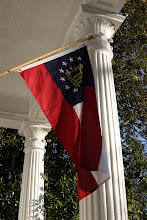 Saltwater pumped deep into the earth in a natural gas mining operation might offer a plausible, but not definitive, explanation for small earthquakes in Texas in 2008 and 2009, scientists say.
Saltwater pumped deep into the earth in a natural gas mining operation might offer a plausible, but not definitive, explanation for small earthquakes in Texas in 2008 and 2009, scientists say. On Oct. 31, 2008, small (magnitude 3.0) tremblors shook homes in the Dallas-Fort Worth area. Similar shakes (3.3) occurred again May 2009. Now there are rumblings in not only Texas, but Oklahoma and Arkansas.
"The earthquakes were right in our backyard, and quakes don't happen too often in Texas," says seismologist Brian Stump of Southern Methodist University in Dallas, senior author on a Leading Edge journal study. "We usually only get small ones."
Some suspicions centered on wells involved in "hydraulic fracturing" of shale layers in Texas and elsewhere. The shale is cracked by injections of high-pressure water, loaded with sand, to free natural gas trapped within. The U.S. Geological Survey estimates that 200 trillion cubic feet of natural gas may reside in shales nationwide.
Stump and colleagues analyzed records from 11 quakes. Triangulating from different earthquake waves, the group narrowed the origin to about one-tenth of a mile just south of the Dallas-Fort Worth airport, atop a geologic fault about 15,000 feet down.
"It's an old fault, but it still has stresses on it, which can trigger quakes," Stump says.
 About 13 fracture wells have been drilled since 2002 near the locale, but the team found the epicenter sits almost exactly on the location of a wastewater "reinjection" well, where about 9,000 barrels of saltwater a day was deposited 10,000 to 14,000 feet deep. The salty "flowback" water was pumped to the surface in the fracturing process, and disposing of such brine by reinjecting it into deep rock removes the need to treat it for safety reasons.
About 13 fracture wells have been drilled since 2002 near the locale, but the team found the epicenter sits almost exactly on the location of a wastewater "reinjection" well, where about 9,000 barrels of saltwater a day was deposited 10,000 to 14,000 feet deep. The salty "flowback" water was pumped to the surface in the fracturing process, and disposing of such brine by reinjecting it into deep rock removes the need to treat it for safety reasons.
"These kinds of induced quakes are widely accepted in the seismological community, and it looks like they have a case here," says geophysicist Jim Dewey of the U.S. Geological Survey office in Golden, Colo. "The vast majority of wells don't have quakes associated with them, of course."
But geophysicist Shaopeng Huang of the University of Michigan in Ann Arbor cautioned in an e-mail that "a causal link between a given earthquake with a particular borehole is debatable," given the tremendous energy involved in even a minor quake.
"We are only saying a link to the well is 'plausible,' not definitive," Stump says. Still, he notes, the quakes have ceased since the saltwater reinjection was stopped at the site after a third set of tremblors in June 2009.































No comments:
Post a Comment